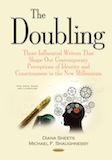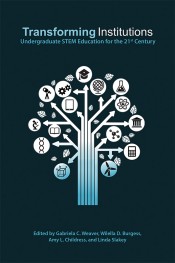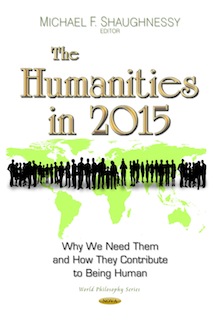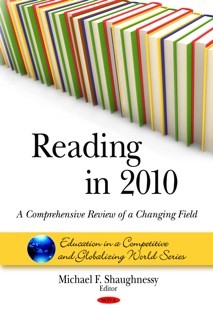Politics & Literature: Framing the Political Narrative for Victory in the 2008 Presidential Election
Copyright © 2008 by Diana E. Sheets
Narrative is central to our lives. Without it we have no way of comprehending the plethora of information swirling around us. How we choose to present our story and incorporate it into the context of economic and global politics determines our effectiveness in navigating the world. Literary Gulag has continually emphasized the importance of great literature presenting the defining narratives of our time. It is important to understand the correlation between political narratives and literary stories. Over the course of the next several months, Literary Gulag will examine the political narratives competing for victory in the 2008 presidential election. By understanding these stories the reader will be able to “deconstruct” the hidden dynamic influencing the selection of
A battle is underway to win the emotional support of the American electorate and, in so doing, influence the outcome of the 2008 presidential election. As with any compelling drama, the political campaign is waged through narrative, stories that frame an emotionally compelling message through language, images, and voiceovers that tap into voters' unconscious beliefs. Since Ronald Reagan’s victory in 1980, Democrats have maintained that Republicans have deceived Americans into voting against their economic interest. In order to regain the presidency and a congressional majority, Democratic strategists argue that the party must master the art of political narrative and “reframe” its story in terms that resonate with the underlying values of American voters receptive to liberal ideals.
This essay will examine the linguistic and cognitive science arguments presented in George Lakoff’s Moral Politics: How Liberals and Conservatives Think (The University of Chicago Press 2002, first published in 1996) and its reductive corollary, Don’t Think of an Elephant! Know Your Values and Frame the Debate (Chelsea Green Publishing, 2004); Geoffrey Nunberg’s Talking Right: How Conservatives Turned Liberalism Into a Tax-Raising, Latte-Drinking, Sushi-Eating, Volvo-Driving, New York Times-Reading, Body-Piercing, Hollywood-Loving, Left-Wing Freak Show (Public Affairs, 2007, first published in 2006); and Drew Westen’s The Political Brain: The Role of Emotion in Deciding the Fate of the Nation (Public Affairs, 2007) in order to analyze the factors influencing the outcome of the 2008 presidential election.
George Lakoff’s decision to write Moral Politics was motivated by a desire to understand the causes underlying the Republican landslide in the 1994 Congressional elections (11). That year, despite a Democratic president, Republicans obtained a majority in both Houses, thereby succeeding in controlling the House of Representatives for the first time since 1954. As a linguist, Lakoff is interested in language, narrative, and the unconscious values that politicians draw upon to sway voters. “Unconscious,” in this case, is defined prosaically as “unaware,” rather than its Freudian interpretation (x, 4). Lakoff’s premise is simple. “Contemporary American politics is about worldview. Conservatives simply see the world differently than do liberals, and both often have a difficult time understanding accurately what the other’s worldview is” (3). Lakoff strives in Moral Politics to illuminate these differing perspectives in order that voters, pundits, and political strategists will understand the factors shaping voter preferences. To illuminate the political chasm that constitutes this political divide, he employs the “Nation As Family” metaphor in which the “Government Is a Parent” and the “Citizens Are the Children” (154).
The family model of government for conservatives, Lakoff suggests, is the “Strict Father.” This perspective maintains that “life is difficult and that the world is fundamentally dangerous” (65). The father’s moral strength is exhibited through discipline, self-reliance, and individual responsibility. His moral outlook provides him with the strength to defeat evil from without and within. He understands that competition is necessary for survival. His primary responsibility is to protect his family. Physical and moral strength are the foundation for his authority while empathy and nurturance are secondary attributes. His wife supports him. His children accept his guidance and governance and develop character by respecting and obeying parental dictates (12-3, 30, 65-78).
The language of conservatives is anchored to their conceptual system. The words they use—“character, virtue, discipline . . . self-reliance, individual responsibility, backbone, standards, authority, heritage, competition, earn, hard work, enterprise, property rights, reward, freedom, intrusion, interference, meddling, punishment . . . traditional . . . self-indulgent, elite, quotas, breakdown, corrupt, decay, rot, degenerate, deviant, lifestyle”—cannot be understood unless they are considered with respect to their conceptual framework (30).
For liberals, the model of government is the “Nurturant Mother,” which has been extended to apply to the gender-neutral “Nurturant Parent.” If there are two parents, they share responsibility. The family values are founded on love, empathy, and nurturance with the goal of protecting and fostering the development of children, who may challenge parental authority if the rules seem arbitrary. Ideally, liberals inhabit a child-centric universe with fulfilled and happy youths who, as they mature, develop empathy and a willingness to assist others in society who are less fortunate. Some of the words liberals associate with their conceptual framework include the following: nurture, care, protect, empathy, fairness, social responsibility, inter-dependence, fulfill, and happiness (15-6, 20, 35, 108-24, 165-7, 173).
Thus, conservatives represent a masculine worldview, liberals—or “progressives” as they refer to themselves today—a feminized domain (http://www.literarygulag.com/blog/show/6, http://www.literarygulag.com/blog/show/5). If we rely on Westen’s estimates, today roughly thirty percent of the electorate consistently votes Republican and thirty percent Democratic. Changeable voters constitute ten to twenty percent of the electorate (The Political Brain, xiv). According to Lakoff, these “floaters” embrace elements of both the “Strict Father” and the “Nurturant Mother” models (Moral Politics, 14-16). For over thirty years, Lakoff contends, Conservatives have carefully constructed “conceptual links in the voters’ minds between morality and public policy.” In so doing, he argues, the myths and language have reinforced through powerful slogans “those family-morality-policy links” until “the connections have come to seem natural to many Americans” (19). Consequently, many voters are casting ballots based upon their conceptual framework that is often contrary to their “true” economic interests (16).
Ignore the political bias. Overlook Lakoff’s distain for the conservative terms--character, virtue, and discipline--and his approbation for the “progressive” lingo--empathy, protect, and fairness. Disregard the self-righteous justifications in Part VI of Moral Politics, which digresses into a “left think” jeremiad. It would be hard to overestimate the significance of Lakoff’s study, which lays bare the unconscious conceptual worldviews driving party preference. Moral Politics has become a canonical text that has reshaped Democratic strategies in endeavoring to win the 2008 presidential election. But before drawing any conclusions, let us examine the other studies under consideration.
Don’t Think of an Elephant! Know Your Values and Frame the Debate by George Lakoff is a political distillation of the linguistic arguments presented in Moral Politics. It has a foreword by Howard Dean, chairman of the Democratic National Committee, who praises Lakoff as “one of the most influential political thinkers of the progressive movement” (ix). Don Hazen, of AlterNet.Org, suggests in the introduction that “many Americans voted their moral identity and values, often at the expense of their economic interests.” He adds, “Progressives [sic] need to do the hard work of determining our values and reframing the political debate. We need to state those values and messages early and often” (xi). Lakoff notes in the preface the extraordinary power of frames and the importance of reframing the party message.
Frames are mental structures that shape the way we see the world. As a result, they shape the goals we seek, the plans we make, the way we act, and what counts as a good or bad outcome of our actions. In politics our frames shape our social policies and the institutions we form to carry out policies. To change our frames is to change all of this. Reframing is social change . . . .
Reframing is changing the way the public sees the world. It is changing what counts as common sense. Because language activates frames, new language is required for new frames. Thinking differently requires speaking differently. (xv)
Thus, Lakoff captures the essence of the “progressive” mandate: build new language and construct new narratives that evoke the unconscious ideas and values that will drive the electorate to vote their true identity, thereby ensuring the election of “progressives” into office (xv, 4, 39).
Geoffrey Nunberg, a colleague of Lakoff’s at the
Over the past few decades, Nunberg argues, conservatives have controlled the symbols and vocabulary that Americans rely on for political judgments (31). One of their great wordsmiths in the reframing of narrative has been Frank Luntz, responsible for having coined “death tax” for estate tax, “opportunity scholarships” for school vouchers, and “climate change” for global warming (9). In order to redress the political imbalance in language, symbols, and narrative, Will Marshall of the Progressive Policy Institute has advised Democrats to challenge the conservatives religious dominance, suggesting the party should become “comfortable using the language of faith” in the heartland. This, he has suggested, will counter misconceptions that “bicoastal elites look down on them as Bible-thumping primitives” (15). Since the late sixties, according to Nunberg, the 1992 political campaign of Bill Clinton has been one of the rare successes of the Democratic party (35).
Party operatives have complained, again and again, about the absence of a compelling narrative. Stanley Greenberg, Democratic pollster, has credited Republicans with a “narrative that motivated their voters.” Senator Barack Obama, the presumptive Democratic nominee for President, has called for a “new narrative.” Thomas Frank, author of What’s the Matter with Kansas?, has acknowledged that Republicans have “captured the narrative of social class.” Robert Reich has stated that Republican success in “the art of political narrative” has “exiled Democrats from politics itself.” Or as James Carville, lead strategist for the 1992 Clinton presidential campaign has noted, “They produce a narrative, we produce a litany” (14), For more than thirty years, Nunberg contends, Republicans have diverted class resentments rooted in economic inequalities to debating “values,” thereby ensuring that moral issues become part of the “core vocabulary of American political discourse” (15-16).
Naturally, conservatives have challenged these arguments. As Marc Cooper noted in his review of Don’t Think of an Elephant!, which appeared in the Atlantic Monthly, the book “is a feel-good self-help book for a stratum of despairing liberals who just can’t believe how their commonsense message has been misunderstood by the eternally deceived masses.” (April 2005, Vol. 295, Issue 3, 99-106). The following month Joshua Green, Senior Editor of the Atlantic Monthly, wrote “buzzwords are not going to rescue a failing party. That so many Democrats have achieved the Olympian state of denial necessary to believe otherwise suggests that the tempting abstractions of language and messaging have diverted them from a truth that ought to be perfectly clear: rather than being misunderstood, they were understood all too well” (May 2005, Vol. 295, Issue 4, 45-46).
However, “progressives” have not been deterred. Consider Drew Westen, political psychologist at
Just what are some of the lessons to be learned? When partisan voters are given conflicting information about their candidate, they reach conclusions that support their political persuasion. Thus, according to Drew, once the brain registers the conflict between information and emotional desire, it begins to “reason to false conclusions,” thereby switching off the neural circuits associated with “negative emotions” while responding positively to feelings associated with the preferred candidate. Consequently, partisans deny information that challenges their party’s candidate. To overcome these obstacles Westen suggests a pragmatic strategy. Focus on securing your hard core supporters while trying to win over that decisive ten to twenty percent of the electorate potentially receptive to the ideals of your party (xiii-xv). He advocates that language, symbols, and narrative should be simple and evocative. They should tap into the values and beliefs of voters, persuading them to vote for the candidate whose story they find most emotionally appealing. Only if economic circumstances are dire are voters likely to be swayed by rational arguments based on facts and figures independent of a compelling emotional narrative (4-7, 120-1). Thus, we discover that the political brain is a computational brain only under duress, and it never performs these functions very well. It is far more skilled at developing a network of associated memories founded on emotional connections. Consequently, the successful strategy is obvious: develop words, images, symbols, and stories that target emotional memories tied to common network clusters and victory will be sure to follow.
The Political Brain devotes substantive analysis to how words and phrases emotionally trigger support. Numerous case studies are provided of effective and disastrous episodes that won or lost presidential campaigns. Let us consider one illustration that demonstrates the effectiveness of Bill Clinton’s 1992 presidential campaign. As Westen notes,
The narrative is simple.
Lakoff, Nunberg, and Westen have provided us with playbooks for decoding the 2008 presidential campaign. We may expect the following. Language will be carefully crafted. Advertisements will focus on personal narratives. The campaign will employ “attack” advertisements that emotionally sway voters (318, 331, 333, 336-7, 342). Policy will be sketchy with vague descriptions that emotionally satisfy Americans while offering scant details. The emphasis will be on creating narratives that resonate with the values, beliefs, and identities of prospective voters.
Drawing on the lessons of the past thirty years, the 2008 Campaign will be meticulously staged. Both candidates’ narratives will be carefully scripted. Their talking points will be exhaustively prepared. They will be expected to remain on point. Spontaneity will be deemed too risky: one mistake might cost the election. The candidates will resemble actors competing in a continuously unfolding “Reality Program” composed of “candid” emotional moments calibrated for developing market share.
It matters not whether the personal narratives are authentic. What is relevant is the emotional temperature of the audience and how it will translate into votes. Already the 2008 “Countdown for the Presidency” appears to be morphing into “
Along this path to political enlightenment, Dear Reader, you are likely to encounter uncomfortable fallacies. The political drama of the 2008 election, as anticipated by the political strategists, will prove to be not so terribly different from the disappointments of literary fiction. Just as politics eschews uncomfortable truths and discomforting realities so too does literary fiction. Just as politics strives to create a saccharine homily so too does literary fiction. Just as political memoir reads less and less authentically so too with literary memoirs. Just as the election campaign is unlikely to address substantively the important issues of our time so too will literary fiction fail in its mission to provide its readers with gritty realism. But fear not, Dear Reader. We are in the Literary Gulag. And as dwellers in this cosmic space of exile we obtain precious freedoms. The freedom to describe what actually transpires. The freedom to break the bonds of mythical reality. The freedom to pursue objectivity. This while traveling the synaptic pathway along the emotional highway in search of veritas.
Literary Gulag will be featuring monthly essays on the presidential election from August through the end of the year. Next month’s essay will examine the memoirs of the presidential candidates, illuminating what they reveal about the campaign narratives and what these tales portend for the future. Stay tuned for the grand spectacle.









